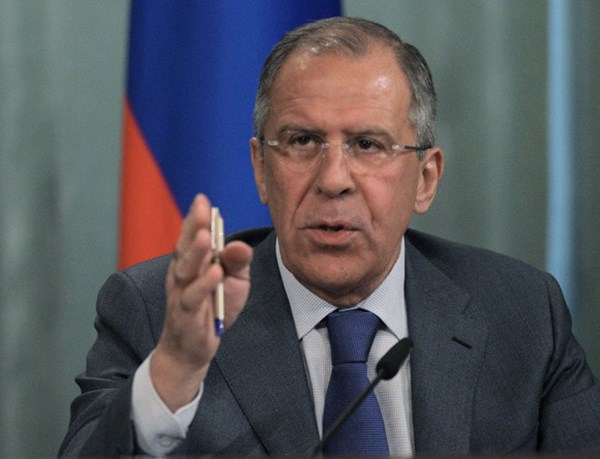Russian Foreign Minister explains why peace treaty with Japan cannot be signed
The conclusion of a peace treaty between Russia and Japan is hindered by the military-political alliance between Tokyo and Washington, Russian Foreign Minister Sergey Lavrov told reporters in Nagoya, Japan. The broadcast of his speech was published on Twitter by the Russian Ministry of Foreign Affairs.
"The military alliance with the United States, of course, is a problem in giving a new quality to Russian-Japanese relations," he said. The Minister recalled that when agreeing on the Soviet-Japanese declaration concluded in 1956, Moscow stated.
Russian Foreign Minister Sergey Lavrov said that Moscow had given Tokyo a list of its concerns about Russia's security in connection with the Japan-US Alliance. "Our Japanese colleagues promised to respond to these concerns. We will wait for their response and then continue the discussion," he said.
Speaking about Washington's activities in the Asia-Pacific region, Lavrov said that the US "does not hesitate to publicly confirm that Russia and China are their main threat." According to the Russian Foreign Minister, US military alliances, including with Japan, are being built based on these threats. "But yesterday, at a meeting with the Japanese Foreign Minister, we concluded that it diverges from Japan's assurances that Japanese-American military-political Alliance is not directed against the Russian Federation," he added. As Lavrov said, the issue of the military-political Alliance between Tokyo and Washington will be one of the main topics of the Japanese Foreign Minister Toshimitsu Motegi's visit to Moscow in December.
Japan and Russia did not conclude a peace treaty after World War II. Japanese authorities demand the return of the Kuril Islands of Kunashir, Shikotan, Habomai, and Iturup. Russia believes that these territories legally became part of the USSR at the end of the war. Moscow has repeatedly stated that it is not going to "lower the Russian flag" on the Kuriles.
Japanese Prime Minister Shinzō Abe expressed hope that Moscow and Tokyo will resolve the issue with the peace treaty until 2021. On November 20, Russian Deputy Foreign Minister Igor Morgulov reported that there are "fundamental differences" that are still present in the approaches of Moscow and Tokyo to the conclusion of the treaty. He said that further progress in the talks would be "complicated" without bridging these differences.
